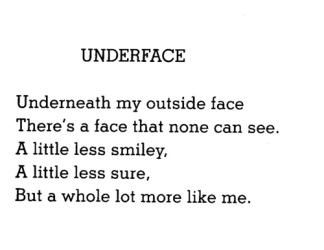This afternoon a handful of friends and I gathered together at a local church as we do each Sunday afternoon. Who shows up varies week to week, yet the place always feels like home and the group feels like family. Sometimes I don’t want to go, but once I get there, I’m always glad.
Today we discussed those people and issues in our lives that are beyond our control…that threaten to overwhelm us…that we just can’t handle on our own power. We meditated on the simple phrase “I can’t, God can, I think I’ll let him,” exploring what personal issues are currently bringing us to our knees. And then we considered our individual problem areas where we are resistant to take positive action, contemplating the question, “What can I be doing that I should not expect God to do for me?”
 As I thought on that last question, I was tempted to rattle off all the steps I think I “should” be taking, all the tools I’ve been taught over the years that I “should” be using, and all the spiritual principles I “should” be applying to my thoughts, feelings, and behaviors. In this faulty, self-defeating mindset, I can come up with an endless agenda of how to be better—better at loving, praying, serving, including, helping, praising, hugging, encouraging, supporting, giving, volunteering, ad infinitum. Whenever this perspective pops up, it tempts me into perfectionism, striving to be the very best me in such a way that I become rigid and exhausted. No need for God’s help. I’m fully capable and I’ve got this whole “self-improvement” project under tight control…
As I thought on that last question, I was tempted to rattle off all the steps I think I “should” be taking, all the tools I’ve been taught over the years that I “should” be using, and all the spiritual principles I “should” be applying to my thoughts, feelings, and behaviors. In this faulty, self-defeating mindset, I can come up with an endless agenda of how to be better—better at loving, praying, serving, including, helping, praising, hugging, encouraging, supporting, giving, volunteering, ad infinitum. Whenever this perspective pops up, it tempts me into perfectionism, striving to be the very best me in such a way that I become rigid and exhausted. No need for God’s help. I’m fully capable and I’ve got this whole “self-improvement” project under tight control…
An entirely different way to approach the same question is to focus on surrender as the true solution. “What can I be doing that I should not expect God to do for me?” I, and only I, can pause to lay down my small self-made plans and my compulsive worker-bee drive. Only I can wake up each morning and ask God what he has for me to do for Him that day. Only I can let go of my self-centered will and yield to his Spirit. Only I can admit my weaknesses and rely on His strength. He doesn’t force me to surrender—only I can seek to sacrifice self that I may live in God’s freeing flow and the sunlight of the Spirit.
 While a part of me wants to do everything I can do to stay steady on God’s path, I sense that today I need to shift my focus to the two short words “let Him.” Though it may be difficult to let someone else lead me, only I can stop trying to pave my own path, drop the burden, ask for help, and follow God’s trustworthy way. Only I can listen to His voice and let Him guide me where He wills. Only I can make the choice to surrender.
While a part of me wants to do everything I can do to stay steady on God’s path, I sense that today I need to shift my focus to the two short words “let Him.” Though it may be difficult to let someone else lead me, only I can stop trying to pave my own path, drop the burden, ask for help, and follow God’s trustworthy way. Only I can listen to His voice and let Him guide me where He wills. Only I can make the choice to surrender.
God, grant me the serenity to accept the things I cannot change, the courage to change the things I can, and the wisdom to know the difference.
What do you need to do, and what do you need to let God do?











![12%20Steps%20Wheel[1]-1](https://anniebriggs.files.wordpress.com/2013/06/1220steps20wheel1-1.jpg?w=526&h=525)

